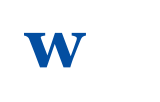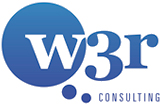Is your career at a crossroads? Have you thought about taking your skills elsewhere? You are not alone. According to Spiceworks, one in four IT professionals plan to change their employers in 2019. Whatever your reasons for leaving (a desire for better working conditions, more responsibility, or to leave before expected layoffs), your next opportunity should align with your actual career motivations. When many tech professionals begin evaluating their options, they find that working in healthcare IT satisfies a wide variety of their job criteria. Here are the main reasons why some tech professionals believe it is worth transferring their skills into the healthcare IT space.
Increasing Your Job Stability
Even though we’re still in a full employment economy, nothing lasts forever. Layoffs on the horizon for many sectors, slowing economic growth, and increasing automation are creating feelings of job insecurity for plenty of people. For those trying to be proactive about their future prospects, the healthcare field can often provide a far more stable alternative. For one, healthcare is far less subject to the boom and bust cycle of many other industries. Stephen Emsley, Technology Director and Security & Compliance Officer at w3r Consulting, points to the automotive industry as an example. “For some sectors, you see a headcount reduction every ten years as the buying cycle ebbs for a time,” said Emsley. “On the other hand, the healthcare field fluctuates less by comparison and is expected to create 4 million jobs by 2026 as the population ages and demand for services grows.” Additionally, healthcare companies are very careful about who they hire. With the wellbeing of their patient or member population at stake, and HIPAA and Hi-Tech compliance on the line, they want to make sure they hire the right person for the right position. It’s why the average hiring process in healthcare takes about 22.5 business days to complete. On the plus side, once you are in a healthcare position, your job is likely secure as long as your performance remains strong.
Expanding Your Problem-Solving
If you love a good challenge, working in healthcare IT provides plenty. Tech professionals working in high-stakes industries like the BFSI sector or the automotive field can broaden the perspective of their problem-solving skills in yet another fast-paced environment. In the case of certain IT disciplines like AI and cybersecurity, there is another world of opportunities. “In healthcare, AI opportunities are endless,” said Emsley. “We can use AI to reduce costs by predicting patient outcomes and encouraging preventative care visits. We can use data from smart devices to track vitals and give advance warning of problems like heart attacks or strokes. That’s all just the tip of the iceberg.” For those looking for another layer of challenges to solve in their work, healthcare provides ample opportunities. As part of a healthcare organization, decision-making needs to always address another concern: does a choice positively contribute to the overall quality of patient or member care? With that type of decision making, not only are you pushing the boundaries of your problem-solving skills, but you are keeping people safe and secure at the same time.
Broadening Your Responsibilities
In the Dice 2018 Tech Salary Report, the 30% of tech professionals planning to change their jobs cited more responsibility as one of their primary motivations. For anyone driven to take on greater challenges, the healthcare industry has the potential to provide limitless opportunities. With IT functioning as a smaller part of the overall workforce configuration, many healthcare organizations skew towards generalists over niche specialists (when they can). With the high salaries paid to healthcare professionals, they need to make sure their labor dollars for IT professionals is maximized, finding multifaceted talent to take the lead on a diverse array of challenges. That means, you might be focusing on cybersecurity for an EMR one day and a data management solutions the next. So, not only is there always an opportunity to enhance your technical skills, but there is a chance you can champion new and exciting technologies.
Are you interested in working in healthcare IT? Check out our latest opportunities to see if you can find a career fit!
Related Articles
Why Healthcare Payor Jobs Might Be the Right Fit For Your IT Career
How to Increase Your Odds of Getting ETL Developer Jobs
3 Data Analyst Skills Companies Want You to Have


